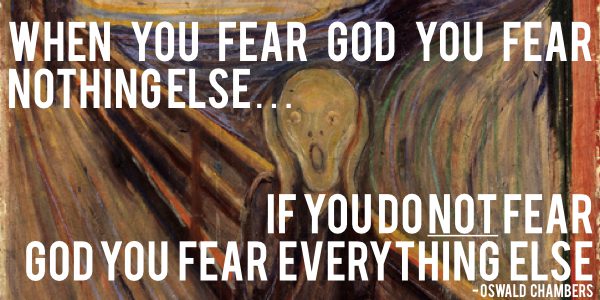 In the wake of yet another active shooter incident, evangelical leaders have been rattling the sabers, and touting the wisdom of concealed carry. In a speech made at the recent Liberty University convocation, Jerry Falwell Jr. bragged that he had a gun in his “back pocket right now.” Liberty is offering a free concealed carry class to all students because, in Falwell’s words, “If more good people had concealed-carry permits, then we could end those Muslims before they walked in and killed them.”
In the wake of yet another active shooter incident, evangelical leaders have been rattling the sabers, and touting the wisdom of concealed carry. In a speech made at the recent Liberty University convocation, Jerry Falwell Jr. bragged that he had a gun in his “back pocket right now.” Liberty is offering a free concealed carry class to all students because, in Falwell’s words, “If more good people had concealed-carry permits, then we could end those Muslims before they walked in and killed them.”
Why does Falwell’s argument have so much traction with evangelical Christians? Because, conceal-carry advocates like Falwell project confidence in the face of what seems to be an overwhelming threat of violence. Packing heat is a proactive response to fear, and Christians like those. But just how realistic is the fear? I was curious, so I ran the numbers.
Between 2000-2013, according to the FBI, there were 160 active shooter incidents resulting in 1043 casualties (486 killed, 557 wounded). That averages out to 80 casualties per year for 319 million people living in the U.S. This means you have roughly a 1 in 4 million chance of being a casualty in an active shooter incident. Any chance is too high, but for reference the odds of being struck by lightning are 1 in 280,000.
Still, Americans are afraid, and fearful people are attracted to leaders who will strike a Toby Keith-esque “We’ll put a boot in your ass; it’s the American way,” pose even though it has little to do with true strength, and even less to do with the gospel. Falwell’s response not only shows that he doesn’t have a firm grasp on the teachings of Jesus, but that he suffers from a lack of imagination for how Christians might lead the way toward resolving conflicts without immediately resorting to violent forms of behavior.
Christian non-violence is not built on the assumption that all forms of violence are inherently evil, but on the reality that through Christ God has made possible a new way to resolve human conflict.
Oswald Chambers once wrote, “The remarkable thing about fearing God is that when you fear God you fear nothing else, whereas if you do not fear God you fear everything else.” The most rudimentary understanding of Christian scriptures involved the teaching that our future in this world does not rest upon superior firepower. When fearful people are longing for a sense of security, the mature Christian answer is not “Praise the Lord, and pass the ammunition.” The answer is, “Not by might, nor by power, but by my spirit, says the Lord of hosts.” (Zechariah 4:6)
Christian non-violence is not built on the assumption that all forms of violence are inherently evil, but on the reality that through Christ God has made possible a new way to resolve human conflict. The church doesn’t deny that the state does some good through violence, and we can acknowledge that our fellow Christians who feel led to police and military work are able to do so in good faith, hoping to make the world less violent. However, Christians can never take the world’s violence as an absolute. Violence does not determine our future; Jesus does. We don’t enter public space carrying a concealed weapon. We enter carrying a cross. About this, Jesus was unambiguous.
Jesus commanded his followers to carry their cross, not a concealed weapon.
Christians are meant to organize our common life together in such a way that we bear witness to a higher way, a more excellent way. That this way involves suffering and possibly even death seemed inevitable to Jesus. Nevertheless, he taught that the Christian response to violence involves forgiveness, love, and a willingness to persevere in the faithfulness of Christ even in the face of suffering and injustice.
“You have heard that it was said, ‘You shall love your neighbor and hate your enemy.’ But I say to you, love your enemies, bless those who curse you, do good to those who hate you, and pray for those who spitefully use you and persecute you, that you may be sons of your Father in heaven… For if you love those who love you, what reward have you? Do not even the tax collectors do the same? And if you greet your brethren only, what do you do more than others? Do not even the tax collectors do so?” Matthew 5:43-47
If it’s possible, the apostle Paul might’ve actually made matters even more challenging:
“Do not repay anyone evil for evil, but take thought for what is noble in the sight of all. If it is possible, so far as it depends on you, live peaceably with all. Beloved, never avenge yourselves… if your enemies are hungry, feed them; if they are thirsty, give them something to drink… Do not be overcome by evil, but overcome evil with good.” Romans 12:17-21
If we look to Jesus and the writings of Paul, here’s our task: Love your enemies. Bless those who curse you. Do good to those who hate you. Pray for those who persecute you & use you. Do not repay evil for evil. Live peaceably with all. Never avenge yourselves. Do not overcome by evil, but overcome evil with good.
I don’t necessarily like these teachings, by the way. On the fight, flight, flee continuum I’m a fighter. I am all too eager to embrace violence in all it’s varieties. I’m also a hunter and gun owner. But the teaching of Christ compels me to the simple conclusion that it is impossible to defeat the narratives of violence by out-arguing them in a pragmatic sense, or out-shooting them with superior firepower. We can only tell a better story with the way we live our lives. Only when we embody the good news in our common life thru forgiveness, reconciliation, and enemy love will we offer the world an alternative to its violence and retribution.
The battle against evil is not merely spiritual. It is also a real-life physical battle that involves the rendering of our bodies to Jesus, as we become doers of the word, not just hearers, even if it costs us everything.













